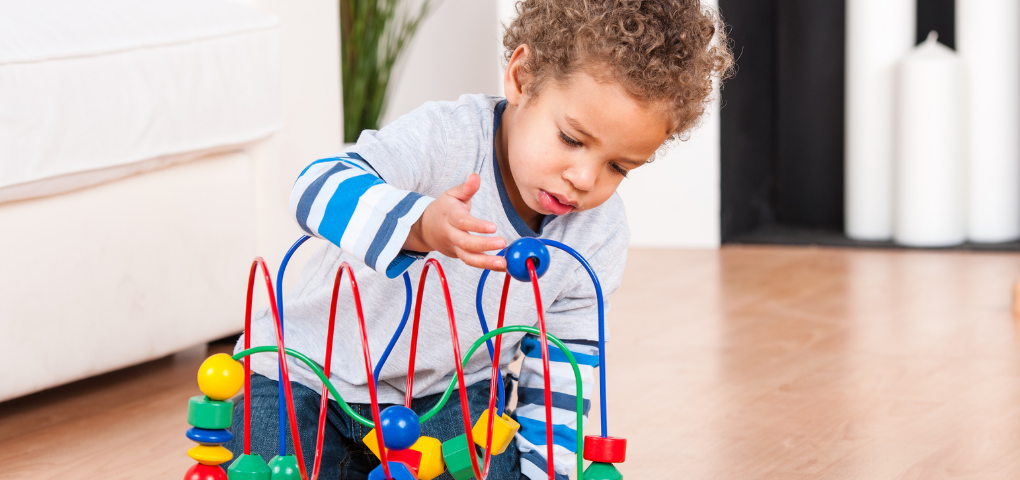A child’s play is often characterized by imagination, curiosity, and a desire to learn. As they grow and develop, children need to be able to make their own choices and explore their world when playing independently. This is what has led parents to worry about how to support their kids in playing independently.
There are many practices that parents can implement in order to support their children during playtime. One of these practices is allowing them time on the computer with a laptop or tablet so that they can entertain themselves without needing adult supervision.
Similarly, you can encourage your kids to play outdoor games like hide-and-seek or a treasure hunt, which can keep them active and give them a chance to explore the yard. These types of games foster creativity, teamwork, and problem solving, all while allowing them to enjoy the outdoors in a safe and supervised environment.
However, before organising these activities, it is important to assess your yard for any potential hazards such as sharp objects or exposed tree roots, that may pose a risk to your child. By addressing these concerns, you can create a safer space for your kids to play freely, without having to worry constantly.
To further improve their safety, you can add durable glass walls san diego or different localities to your home. This can help in supervising them from the indoors to assure their safety without disrupting their play as well as freedom outdoors.
By taking these precautions, you can create a safe and fun environment for your children to explore freely.
How To Develop Children with Independence
Independence is important for children. It is important for parents to let go of controlling the child’s activities and allow them to take control of their own lives. When parents do this, they are not only helping their children develop independence, but they are also building their confidence and self-esteem.
It is now more important than ever to approach parenting with a “growth mindset.” This means that when children make mistakes, instead of blaming or punishing them, it’s best for parents to help them understand the mistakes in order to learn from them.
Parents should encourage children by teaching them useful skills like cooking and cleaning so that they can do these things independently as well as teach children about financial responsibility by taking note of how much money they spend on something so that they will be able to manage it.
Why Support Your Child’s Independence Development?
Many parents are concerned about their child’s independent development. They worry that their children will not be able to handle themselves in the future with all the responsibilities they have to take care of. However, these concerns are not justified because there is a lot of support for children from various sources.
There are numerous benefits for a child from their independence development: it helps them develop into more independent and confident individuals, it helps them find meaning in life, and it also helps them make friends easier.
The world is becoming more and more competitive as time goes on and having an independent, confident individual who can think through hard situations is essential in order to succeed.
How To Create the Environment for Independent Play?
There are 3 key components that will make your child feel like they are not being told what to do and can play on their own:
- Privacy: This is the most important component of the three, and it’s about giving kids increased autonomy in their play. By giving them privacy, they know how much autonomy they have to play freely without being watched by adults.
- Freedom of choice: This is an extension of the privacy aspect that gives kids more freedom in what games to choose from. For example, if there is a game called “Monkey’s Chase,” then you would put a sign up saying “Play Monkeys Chase” and let them choose which game to play next time. If there is a sign-up for “Monkey Hide and Seek,” then you would let them choose between them both.
- Set clear guidelines as your child gets older: One of the most important ways parents can help their children learn how to cope with independence is by setting clear guidelines for certain tasks or activities and regularly checking in on progress. This kind of system allows children to know what they are allowed to do without constant parental input while ensuring that the boundaries they set are followed consistently.
5 Steps to Help Children Play Independently
- Creating a safe and structured play area is essential for fostering independent play development in children, whether indoors or outdoors like the lawn. For indoor areas, designate a specific area with age-appropriate toys, books, and activities that encourage exploration and creativity. Ensure furniture and fixtures are child-proofed to prevent accidents and consider installing soft mats or rugs for added safety. For outdoor spaces, privacy and safety are key, and you may want to explore fencing solutions from companies like Trex Fencing SRF to create a secure and visually appealing boundary for your child’s play area.
You can also let them play on the lawn. For that, you need to first transform a section of the lawn into a stimulating play space. Begin by trimming the lawn and removing any debris using a trimmer and battery blower. Next, install swings, slides, and climbing structures to promote physical activity and motor skill development. Incorporate sensory elements like sand or water tables for tactile experiences, and add shaded areas or umbrellas to protect from the sun. Make sure to establish clear boundaries and rules for play, and supervise children, especially younger ones, to prevent accidents and promote cooperative play.
Also, if your kids are playing on the lawn, don’t overlook the safety concerns if there’s a swimming pool nearby. Pools can pose significant risks, as your children might slip or fall if they lose focus while playing. If they know how to swim, that’s reassuring, but if they don’t, it can be very dangerous. Therefore, consider adding a secure pool cover to prevent any accidents. And, if the pool isn’t being used much and is just taking up valuable space in the garden, it might be a smart decision to contact a pool removal expert in your area to help you safely remove it and open up the area for other uses.
- Setting limits on the activities your child is allowed to do is an important aspect of parenting that promotes safety, responsibility, and healthy development. By establishing clear boundaries and guidelines, you provide structure and consistency, helping your child understand expectations and navigate the world around them effectively.
When setting limits, consider your child’s age, maturity level, and individual needs. Tailor your approach accordingly, ensuring that the rules are reasonable and age-appropriate. For younger children, limits may focus on safety-related activities such as crossing the street independently or using certain household items. As children grow older, limits may extend to screen time, curfews, and social activities.
Communicate the reasons behind the limits to your child in a calm and supportive manner, emphasizing safety, health, and overall well-being. Encourage open dialogue and active listening, allowing your child to express their thoughts and feelings about the rules. Be consistent in enforcing the limits, offering positive reinforcement for compliance and appropriate consequences for violations.
It’s also important to be flexible and willing to adjust the limits as your child grows and develops. Regularly reassess the rules based on your child’s evolving needs, interests, and abilities, and be open to negotiating certain boundaries when appropriate.
- Empowering children to make choices and decisions by offering them options in various aspects of their lives is essential for their development of independence, confidence, and decision-making skills. By giving children the opportunity to choose their preferred activities, allocate their time, or select materials for play or learning, they gain a sense of autonomy and ownership over their experiences. This process encourages them to explore their interests, express their preferences, and develop a sense of agency. Offering limited choices within structured boundaries also helps children learn to weigh their options, consider consequences, and make informed decisions-a crucial life skill that will serve them well as they grow older. Moreover, allowing children to exercise choice and autonomy fosters a sense of respect and trust in their abilities, strengthening the parent-child relationship and promoting healthy development.
- Encouraging and supporting children as they take risks is essential for their growth and development. When children step out of their comfort zones and try new things, it’s important to provide them with positive feedback and reinforcement. This can be achieved by acknowledging their efforts, regardless of the outcome, and praising their courage and willingness to take on challenges. By focusing on their progress and highlighting the improvements they’ve made, children are encouraged to continue pushing themselves and embracing new experiences. Offering specific and constructive feedback helps them understand their strengths and areas for improvement, fostering a growth mindset and resilience in the face of setbacks. Through encouragement and support, children learn to believe in themselves, develop confidence, and build the skills they need to succeed in the future.
- Letting children know that you’ll be available at all times, regardless of the circumstances, is crucial for building trust and a sense of security. By communicating this message, children feel reassured and supported, knowing that they have a reliable source of guidance and assistance whenever they need it. This open-door policy encourages children to feel comfortable reaching out to you with their concerns, questions, or problems, fostering open communication and strengthening your relationship with them. Additionally, knowing that they have a dependable adult to turn to can help children navigate challenging situations with confidence and resilience, knowing that they are not alone. By consistently demonstrating your availability and willingness to listen, support, and provide guidance, you create a safe and nurturing environment where children feel valued, respected, and cared for.
Conclusion:
A child’s independence development is important because it helps them grow into a successful adult. A child’s independence development is the process of learning how to behave and make choices without guidance from parents or other adults.
The importance of independence development is that it helps children grow into adults who have the skills and knowledge to make decisions and choices on their own. Children learn this process of independence development as they learn to behave and make choices without the help of their parents.




